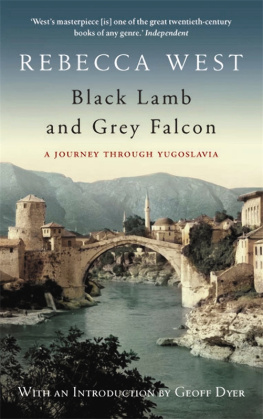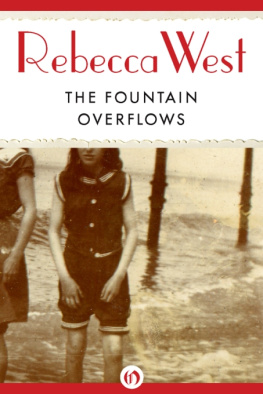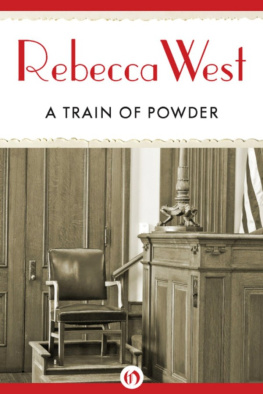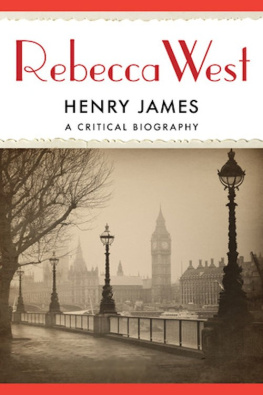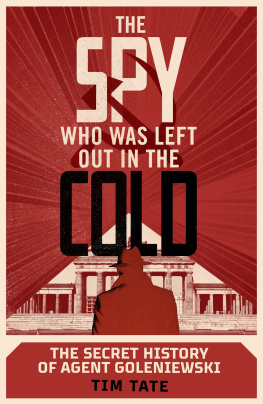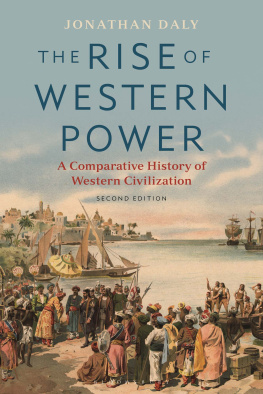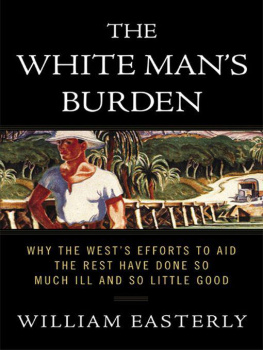The New Meaning of Treason
Rebecca West

To the Memory of Harold Ross
First Editor of the New Yorker
Contents
I SPENT the Second World War in a country-house keeping an anxious eye on my husbands farm, a possession which presented us with problems we had not faced before, and in doing odd jobs of writing trying (with touching ambition) to make the great calamity less calamitous. At a certain time in the evening, I have forgotten the exact hour, I used to sit by the drawing-room fireplace and drink the single gin and lemon which was all our supplies permitted me, and listen to a British traitor named William Joyce who was broadcasting from Germany in an attempt to get Britons to cease their resistance to Hitler.
I was enthralled by Joyces plaintive voice, and by his curious accent which showed that he belonged neither to the upper nor the middle nor the lower classes, and might be called a displaced person, although he would perhaps be more accurately termed an unplaced person. I felt sorry for him because he was so evidently one of those who feel that society had not given him the warm welcome deserved by every son of man, while this regrettable isolation had only come into existence because the little stranger had given, on his side, too slight an intimation of his own amiability.
At the end of the war I was interested to report, for the New Yorker magazine, Joyces trial at the Old Bailey: and I was as interested to follow this by reporting the trial of the son of Mr. Amery, an admired British politician, for a number of treasonable activities committed in Europe during the war. I was then approached by an old friend, who held office in the legal system, who pointed out to me that there were pending a number of prosecutions in which British subjects were charged with treasonable activities, and that the newspapers would have no space for adequate reports of these cases. As a number of the accused persons seemed to have erred from sheer chuckleheadedness, which amounted to a complete ignorance that the crime of treason was of any importance whatsoever, he thought this a pity. Might it not be a helpful thing for me to do?
It seemed to me this might be so. I had reason to feel sympathetic with his idea, as in the First World War my husband had had the experience of having been in a prison camp when Sir Roger Casement addressed him and his fellow prisoners in an attempt to enlist them as traitors; and he had been shocked because an educated man of wide experience should induce people much more simple than himself to adopt a course of action which would have isolated them from their own kind.
I therefore accepted the task, and presently learned that I had put my hand to the plough in a neglected area. I found that when Britain came out of the war a large number of Britons attached no importance to the crime of treason whatsoever. They really did not see why anybody should not spend a war attempting to aid their countrys enemies to defeat it. This could not be explained by the fact that the offences committed by traitors were often insignificant in their effect. That had nothing to do with it. After the war, when espionage was apt to concern the atom bomb, scientists in positions of the highest responsibilities genuinely thought that there was no reason why a man entrusted with secret material relating to lethal weapons should not put his hat on, leave his laboratory, and hand over this material to any person he chose. This attitude of senior scientists was the more strange because of the people who desired to share secret material with strangers were wholly lacking in the experience necessary for telling, say, a German spy from a Russian spy.
As time went on the scientific traitors were displaced by the diplomatic traitors. These people had some excuse when they were young, for they had often reason to distrust the old-fashioned conservatism of their elders. But this fight between revolutionary youth and reactionary age soon became complicated by another issue. Communists and homosexuals formed a curious defensive alliance of forbidden loyalties which attracted a curious desire for participation in the extreme but less erotic forms of unorthodoxy. There led to an expansion of activity related to espionage which might be compared to the progress of the Industrial Revolution: at first such elementary forms as the spinning jenny: to be followed by thousands and thousands of machines of all sizes and shapes. So we lose sight of the classic purity of William Joyce to the hurly-burly of misdemeanour that centred on Stephen Ward and Christine Keeler: and later espionage dived deeper into the crueller hurly-burly of terrorism. Let us hope that the page has now turned over and will show a less corrupting text, for we cannot contemplate calmly the existence of an army of volunteers trading in state documents, often in the name of idealism, but usually with handsome profits in cash or in the way of pleasant and even exalted employment. This brings us to the case of Anthony Blunt. This is a sad affair, if only because he came from a family which has excited the respect and affection of their contemporaries. It is a hard case to discuss, because the curtains have been drawn around it by a fatuous officialdom. None of us outside the hierarchy has any precise picture of what the offences were which he was alleged to have committed and how far they can have imperilled the safety of the state or the wellbeing of members of the public. One may remark here an old failing of the prosecution in all these treason cases. The prosecution takes no pains at all to convey to the public what damage the traitor, if he be a traitor, has done to his own country. There is a hush-hush atmosphere about the trial which is purely nonsensical, and is, the heart of mankind being what it is, designed to cover up the imperfections of the officials, who should have prevented the relevant breeches of security. True, there must be some prudence about the conduct of a case involving our intelligence forces: we cannot allow the details of our own organisation to become known to our enemies. But, on the other hand, if one of our own intelligence officers has performed a specific action which imperils some or one of his own side, it is betraying no secret to our enemies if this becomes known. They know it already. Our defeat, his triumph, is on the enemys files; so why not publish and be damned? The one thing to avoid is to give the public the impression that prosecutions for treason are of so little importance that they need not be explained.
From that point of view the case of Anthony Blunt is indefensible. It is not what the law should always aim at being, perfectly candid. It has concealed the degree of Anthony Blunts importance or unimportance as a blabbermouth, and it has prompted an unhealthy lack of confidence in the body politick. There can be nothing worse for our society than the belief that the rich can break the laws which are binding in the poor. Once it emerges that a member of some important social institution can break the law without detriment to his membership that institute is discredited. That Anthony Blunt was offered immunity from prosecution if he made a statement on his conduct and was allowed to continue as a court official was playing with fire. Some of the Law Officers responsible for this odd proceeding may be dead by now, but it would be as well if these curious achievements were not forgotten. Other disquiets can be forgotten. It does not matter twopence whether persons in such circumstances are rejected by any learned society. The proceedings of such bodies are rarely of importance, and members can foregather with such company as they find congenial. But to offer a man immunity from legal action and a perpetuity of employment in the area of society which is supposed to be the fountain-head of honour, this is a step awe-inspiring in its idiocy. Fortunately the episode is part, so far as the accused person is concerned, of a period drawing to its close. But it was certainly carried out by an official hierarchy capable of acting fatuously to the danger of the state; and if we need not bother ourselves any more with Anthony Blunt, we have grave cause to remember that a privileged profession, a pompous hierarchy, can commit mistakes which can have a dangerous effect on our political ideas, and ideals.
Next page

